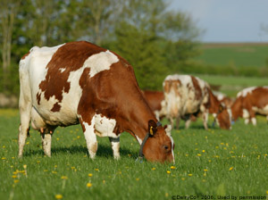Getting Started with Organic Farming – Is Organic for me?
5 September 2023
Summary
This factsheet is the second in a series, the aim of which is to look at the considerations of converting to organic and what it would mean to your business. The first factsheet was “Setting the Scene” while the final factsheet is “How to Convert to Organic”.
Because an Organic system can be quite a change from more conventional farming methods, in some respects it can be easier for a new entrant to become organic than an existing farmer. A new entrant does not have to make changes to an existing system or change the way they are farming. But it does not mean that going organic is unachievable for established farmers. No matter your background or experience, if you believe in and apply organic principles then you can make it work.
Key Considerations When Converting to Organic
For your Organic conversion to work, you need to make sure you have made some key considerations. Most notably around soil management, crop rotation, livestock management, and the infrastructure on your farm.
Soil Management For Organic Farming
- Do you have a source of farmyard manure/slurry on or near your own farm?
- Could you use cover crops?
- What would be the availability of composts in your area?
- Can you see yourself farming without relying on pesticides?
- Can you see yourself farming without chemical fertilisers?
Crop Rotation on an Organic Farm
- Can you incorporate a grass/clover break into your rotation?
- Could you introduce crop rotation between plant families?
- Using only certified organic seeds
- Using disease resistant seeds/plants
Organic Livestock Management
- Do you have a low stocking rate, or would you be willing to reduce your stocking rate? (Max of 13.3 ewes/ha 2.5 cows/ha)
- If only part of the business was converting, animals would have to be separated by distinct blocks of land.
- Replacement animals should be born and raised on an organic unit.
- For ruminants, a minimum of 60% of the feed, calculated over a calendar year, must be obtained from the unit.
- The grazing of organic stock on non-organic land at any time is not permitted.
Organic Farm Infrastructure
- Storing crops would have to be in dedicated areas for organic or in conversion crops.
- Do you have a bedded area in your animal housing, or could you modify existing buildings?
- Indoor area space requirements for sheep 1.5m²/sheep
- Indoor area space requirements for breeding cows 5m² with a minimum of 1m²/100kg.
Minimum Conversion Periods for Becoming an Organic Farm
When converting to organic it’s important to remember that the change is not immediate and it will take at least two years for you to achieve an organically certified system. We have listed some of the key timeframes below:
Arable and horticultural crops
24 months from the last use of any prohibited materials before sowing or planting the organic crops.
Grassland and crops conserved for use as forage
24 months from the last use of any prohibited materials until the grass or crop is used for organic grazing or cut for the production or organic hay or silage.
Livestock conversion
Land and Livestock can convert under simultaneous conversion.
Perennial crops
36 months from the last use of any prohibited materials until the harvest of the first organic crop
Managing The Financial Implications of an Organic Conversion
With conversion taking a minimum of 2 years, added to the fact that stocking numbers will be reduced, the financial aspect is particularly important to assess before converting.
Are you in a stable enough financial position to withstand:
- Potential reduction in output
- Potential reduction in stocking rates
- Potential capital cost of infrastructure changes
Concerns about the above can potentially be alleviated with support funding from the Agri-Environment Climate Scheme (AECS), and we will explore this further in the next factsheet
Next Steps For Organic Conversion
If you are seriously considering converting to organic it would be worth familiarising yourself with the Scottish Organic farming standards in full.
https://www.fas.scot/downloads/organic-conversion-step-by-step-guide/
https://www.fas.scot/discussion-groups/organics/organic-information/
Related FAS Materials
https://www.fas.scot/article/getting-started-with-organic-farming-setting-the-scene/
Sign up to the FAS newsletter
Receive updates on news, events and publications from Scotland’s Farm Advisory Service
